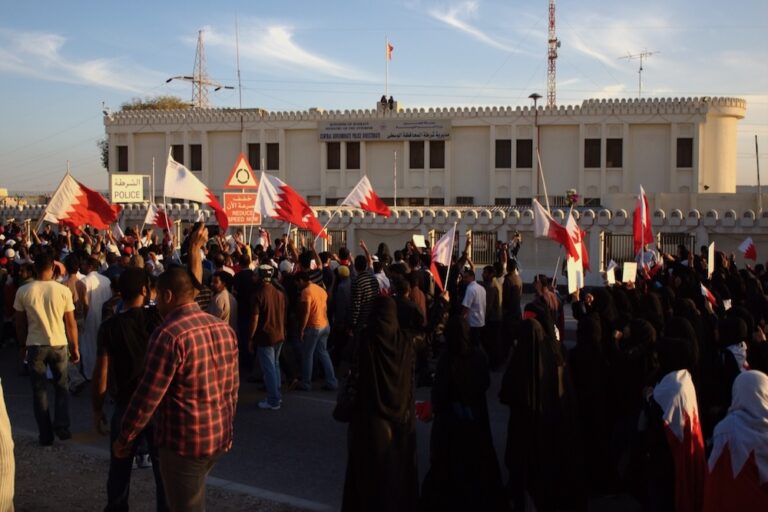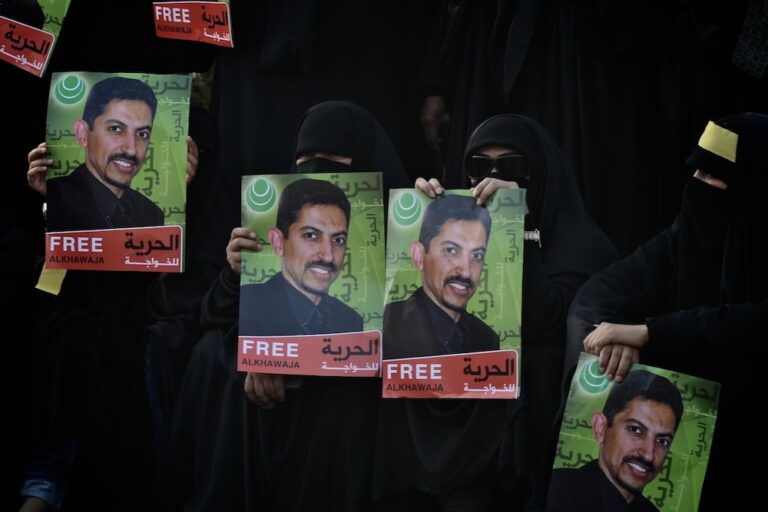Hassan Abdullah Al-Qassem was arrested in September and charged with "distributing leaflets inciting hatred against the regime".
(BCHR/IFEX) – 8 November 2010 – The Bahrain Center for Human Rights (BCHR) expresses its deep concern over the persistent campaign of constraining public liberties and restricting the right to publish and express opinions. The authorities recently arrested a citizen, Hassan Abdullah Al-Qassem, and sentenced him to a year in prison for distributing publications revealing the authorities’ violations of human rights.
In August, the authorities began arresting activists and smearing their image in the press and media. At the same time, stories spread about detainees facing torture in detention centers, and the local press was banned from publishing information on the issue. In response, some individuals distributed publications in both Arabic and English to a number of cars in large shopping malls. The publications documented the authorities’ violations of human rights, and included photographs of some of the victims of violence and torture.
On 8 September, Al-Qassem (aged 21) was arrested and charged with “distributing leaflets inciting hatred against the regime” as well as “possession of images for distribution and display that offend the country’s reputation, are contrary to the truth and give an inaccurate picture.” On 27 October, the Fourth Small Criminal Court sentenced the young man to a year in prison.
Al-Qassem’s trial is taking place against a backdrop of arrests and trials targeting the defense of human rights, especially the right to express opinions. Another ongoing trial involves activists accused of distributing images to the media. The BCHR finds that distributing images and news about what is happening in Bahrain cannot be considered a crime in any matter whatsoever; it is rather one of the principles of free expression. The authorities are apparently resorting to tackling any media that sheds light on these violations, and are using these broad charges as a sort of revenge against anyone who reveals these violations to the outside world.
(. . .)


